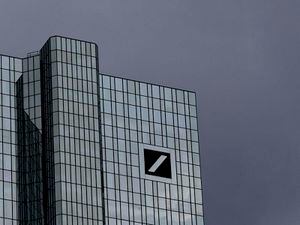Deutsche Bank to axe 18,000 jobs
The bank said it would drop its stock sales and trading unit.

Germany’s struggling Deutsche Bank has said it will cut 18,000 jobs by 2022 in a sweeping restructure aimed at restoring consistent profitability and improving returns to its shareholders.
The bank, which has its headquarters in Frankfurt, in Germany, said on Sunday that it would drop its stock sales and trading unit as part of a plan to exit more volatile investment banking activities.
It said it would cut roughly a quarter of its total cost base through steps such as dropping the investment bank’s stock-trading business.
It would also slim down its division focused on fixed-income investments.
By doing that, the bank would focus on areas with steadier earnings such as serving corporate customers.
The bank would also create a separate unit to dispose of investments that were less profitable or no longer worked with its strategy.
The bank said it did not expect to have to raise additional capital from shareholders.
The job cuts would reduce the workforce to 74,000. The bank would not say where the cuts would fall – many of its investment banking activities are carried out in New York and London.
The move follows the failure of merger talks with German rival Commerzbank.
Deutsche Bank said the combination would not make business sense, but that left open the question of what strategy the bank could pursue to make its business leaner and more profitable.
For years, Deutsche Bank has struggled with regulatory penalties and fines, weak profits, high costs and a falling share price.
The bank went three years consecutively without turning an annual profit before recording positive earnings for 2018.
CEO Christian Sewing took over last year and promised faster restructuring after predecessor John Cryan was perceived to have moved too slowly to restructure the bank.
The bank paid billions in fines and settlements related to behaviour before and after the global financial crisis, including a $7.2 billion (£5.8 billion) settlement in 2017 with the US Justice Department over selling bonds based on mortgages to people with shaky credit.
But that had not ended the negative headlines. Two congressional committees have subpoenaed Deutsche Bank documents as part of their investigations into US President Donald Trump and his company.
Deutsche Bank was one of the few banks willing to lend to Mr Trump after a series of corporate bankruptcies and defaults starting in the early 1990s.
Mr Trump had sued Deutsche Bank to stop the subpoenas, but a judge in May ruled against the president.





